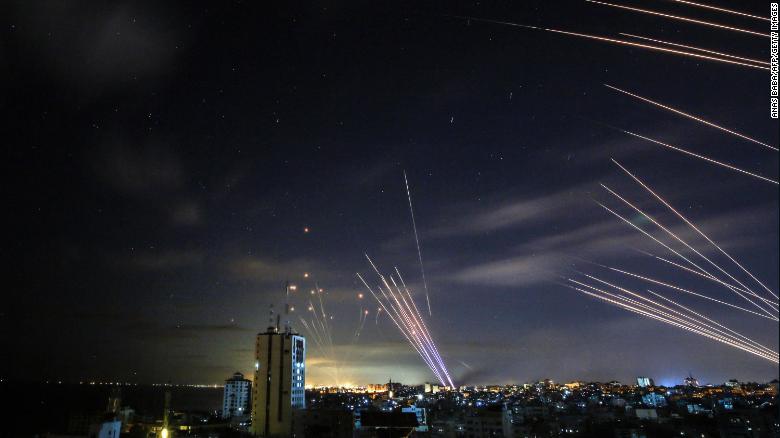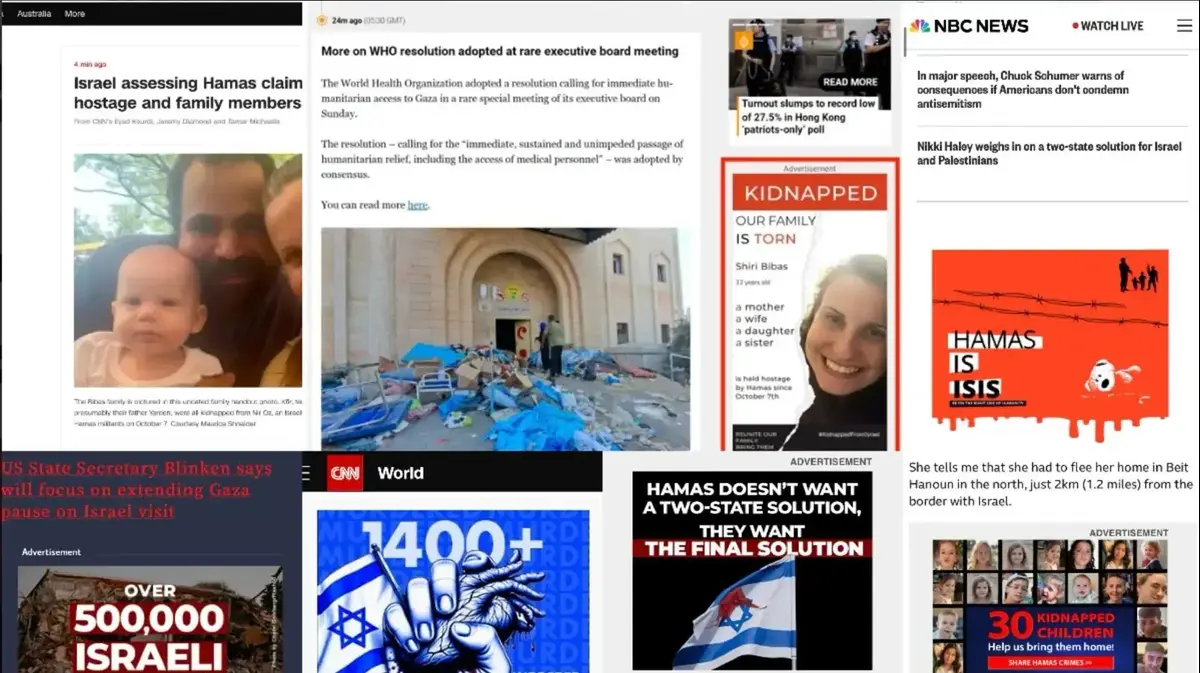In the background, the Israeli Iron Dome missile defense system intercepts rockets fired by Hamas into southern Israel from Beit Lahia in northern Gaza on May 16.
Editor's Note:
Carlos Alberto Montaner is a writer, journalist, and CNN contributor. His columns are published in dozens of newspapers in Spain, the United States and Latin America. Montaner is also vice president of the Liberal International. The opinions expressed here are solely his.
(CNN Spanish) -
When Israel was a poor and weak country, the world, roughly speaking, sympathized with it. It was the
underdog
. He was, to understand us, the weak in the fight. That nation that fought to prevail against powerful enemies.
One of the few things that Harry Truman and Joseph Stalin agreed on in 1947, at the start of the Cold War, was that Israel should exist, but for entirely different reasons. So the US and the USSR voted "yes" the day the UN discussed the creation of the newest country.
Truman made the decision, among other factors, perhaps influenced by his friend Edward Jacobson, a former Jewish business partner, of justice to elevate the Hebrews from the status of "home", which they had in the Middle East, to that of "State." , with all its consequences and responsibilities. After all, they had suffered greatly during Nazism.
Stalin, because he was sure that he would have a new ally in that area of the planet.
Remember that Israel emerged as a democratic state, but with the strong power and influence of the Histadrut, a powerful trade union center.
It was the highlight of the kibbutz.
If the USSR had opposed, exercising the veto that assisted it, the partition of Palestine would not have been authorized to create the State of Israel and the Palestinian State to which the UN gave its approval.
(The Palestinian, as is known, has not yet been created).
I suspect that the images of the concentration camps and the thousands of corpses piled up in the open were very important.
The Nazis did not have time to bury them and erase the traces of their horrendous crimes.
On that date, various Arab nations threw themselves at the throat of the newly emerged nation.
Egypt, Jordan, Lebanon, Iraq and Syria, together with volunteers from Saudi Arabia and Yemen, together with the Palestinians involved in the conflict, tried hard to liquidate Israel.
They could not.
The Jews defended themselves like belly-up cats.
At that time in the West Arabs were perceived ideologically very close to the Nazis.
They shared anti-Semitism.
Arab leaders are known to preach "throwing the Jews into the sea."
Killing infidels was part of the Qur'an.
Muhammad preached these attitudes.
Perhaps it was the time, but the Qur'an, like the Bible, could be read literally and the Grand Mufti and many of his followers did.
Why do the clashes between Israelis and Palestinians take place?
2:17
The perception of Israel as an
underdog
changed radically after the so-called Six Day War, which occurred in June 1967. Actually, at the moment when Egyptian and Syrian aviation was decimated, the conflict theoretically ended. That happened the first day. The Jews knew they were going to be attacked and acted preemptively. Perhaps they did not take into account the change in perspective. Or perhaps they had no other way out than to attack and win.
The USSR had lost all illusion of conquering the State of Israel and not only began to discredit it, but also put its sounding board to do so, that is, all the communist parties it controlled. The countries dependent on Moscow broke relations with Israel. The exceptions were Cuba and Romania. But Cuba waited until the Yom Kippur War in 1973, when it sent two tank brigades to the Golan Heights on the Syrian front, who did not even fight. A disaster that they don't talk about too much in Havana.
As I see it, in some way, the systematic attack by Moscow - and by all communist parties - could have contributed to reshaping the perception of Israel, among other factors.
He was no longer the
underdog
, but the
bully
.
He was the abuser, despite the fact that it is a small state of barely 20,000 square kilometers and some 9 million inhabitants, of which more than a million are Muslim, surrounded by hundreds of millions of enemies that have dozens of nations.
With an aggravating factor: Israel cannot afford to be defeated.
They believe, and in my opinion they are right: they are put to the knife.
Israel














